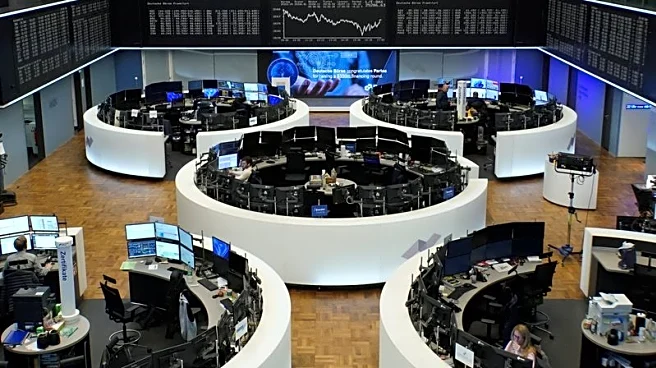What's Happening?
The biotech sector is experiencing positive momentum, with the S&P Biotech ETF (XBI) rising 43% over six months and successful IPOs and mergers and acquisitions (M&A) signaling renewed investor interest.
Despite these encouraging signs, experts caution against declaring a full comeback, noting that the market remains selective. Large funding rounds are concentrated in specific areas like AI and obesity treatments, while early-stage fundraising remains challenging. The industry is seeing a shift towards larger investments in fewer companies, with a focus on those with proven data and partnerships.
Why It's Important?
The resurgence in biotech investment could drive innovation and development in critical areas such as AI-driven drug discovery and advanced therapies for diseases like obesity and cancer. This trend may lead to increased competition and collaboration among biotech firms and pharmaceutical companies, potentially accelerating the development of new treatments. However, the selective nature of investments suggests that only companies with strong data and strategic partnerships will thrive, highlighting the importance of scientific validation and market readiness.
What's Next?
As the biotech sector continues to evolve, companies with robust clinical data and strategic alliances are likely to attract more investment. The focus on larger funding rounds for established companies may lead to further consolidation in the industry, with smaller firms struggling to secure early-stage financing. The ongoing M&A activity could result in significant shifts in market dynamics, as big pharma companies seek to replenish their pipelines through acquisitions. Stakeholders will watch for regulatory developments and clinical trial outcomes that could influence investment decisions.
Beyond the Headlines
The current trends in biotech investment reflect broader shifts in the industry, where scientific innovation and strategic partnerships are increasingly critical for success. The emphasis on data-driven decision-making and targeted investments may lead to more efficient resource allocation and faster development of breakthrough therapies. This environment encourages companies to focus on quality over quantity, potentially leading to more sustainable growth and long-term value creation in the biotech sector.










